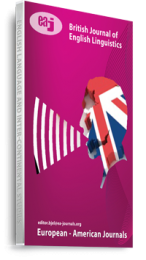Diglossia is a sociolinguistic term that refers to two varieties of a language that exist side-by- side within a community, with each having distinct functions (Ferguson,1959). Diglossic code-switching (CS) between Modern Standard Arabic (MSA) and Arabic vernacular focuses generally on face-to-face interaction. However, diglossic CS on social media networks has not been fully discussed in the literature. This study investigates the motivations for diglossic CS between Standard Arabic (SA) and the Najdi Arabic dialect (ND) among Saudi users on Twitter, and seeks to determine if the CS patterns can differ the topic of discourse. The current study adopts Ferguson’s (1959) context-based model. Quantitative and qualitative analyses are used. Two hundred tweets from two hundred different accounts were randomly selected from Saudi males and females of different ages. The data was based on the theme or topic of four hashtag tweets discussing four different features, namely social, educational, socio-political and sports’ topics. The findings demonstrate that the Saudi Twitter users utilized the diglossic CS to SA to highlight Quranic verses and prophet narrations, to direct quote, and to introduce seriousness. On the contrary, ND Twitter users had some reasons for shifting to the ND: to express sarcasm and humor, to introduce culture- bound expressions, and to insult or attack someone or something. The current study against Ferguson’s assumption (1959) that proposed association between the choice of linguistic code and given topic and occasion. The results reveal that diglossic CS existed in different situations and varied in terms of formal and informal contexts. Thus, diglossic CS occurs in order to achieve certain intended outcomes.
Keywords: Najdi dialect, Twitter, diglossia-code switching, modern standard Arabic

